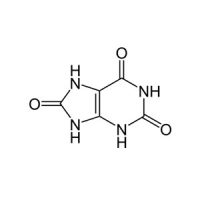(August 22, 2018)
A recent study using Salimetrics Salivary Uric Acid Assay found strong support for the validity, stability, and utility of measuring uric acid in saliva.
A new study, “The validity, stability, and utility of measuring uric acid in saliva,” published in Biomarkers in Medicine, used the Salimetrics Salivary Uric Acid Assay Kit as part of a longitudinal study to better understand the biological value of measuring uric acid in saliva samples. The overall conclusion demonstrated salivary uric acid’s potential as a strong indicator of systemic uric acid activity and carried a high measurement validity and relative stability as a biological sample within the samples collected. “The finding suggests that salivary uric acid could serve as a biomarker for a wide range of potential conditions and disease states,” writes principal investigator, Jenna Riis, Ph.D., a researcher at the Institute for Interdisciplinary Salivary Bioscience Research, University of California at Irvine. Dr. Riis’ research concluded that “taken together, the present findings move us more toward enthusiasm than caution by suggesting moderate-to-strong measurement validity and stability when uric acid is measured in saliva.”
Novel findings from Dr. Riis’ study serve as an additional building block toward understanding salivary uric acid as an important biomarker for indexing health and disease risk. Similar to patterns seen in studies examining serum uric acid, males exhibited significantly higher levels than females and BMI was also positively correlated with salivary uric acid levels. This study also added to a growing body of research reporting correlations between serum and salivary uric acid measurements, further reinforcing salivary uric acid’s association with systemic uric acid levels.
While investigators have long been studying the relationship between serum uric acid and oxidative stress, more recently, research on salivary uric acid has shown strong associations with neurological activity, suggesting a deep neurological influence. “In humans, uric acid is one of the most potent and most prevalent anti-oxidants in the blood, contributing over half the antioxidant capacity of blood plasma. One interesting observation is that gout patients have a significantly lower incidence of Parkinson’s disease and uric acid has been found to be reduced in the serum of patients with Alzheimer’s disease, Huntington’s disease, Parkinson’s disease and Multiple Sclerosis,” says Steve Granger, Ph.D., Salimetrics CSO. “When you pair the robust performance characteristics of Salimetrics’ Salivary Uric Acid Assay with the stability of uric acid in saliva enabling the potential for at home collections, the research applications are near limitless. This is an exciting time to facilitate new discoveries.” Emerging research is also beginning to link salivary uric acid’s role as part of the biological response to stress. Based on this research, Dr. Riis notes, “Salivary uric acid has widespread potential in biobehavioral and health research, and there is a critical need to further understand the complex biological relationships that connect uric acid with health and well-being.”
In the clinical space, uric acid is often associated with understanding the effects of hyperuricemia. Hyperuricemia, commonly associated with gout and kidney stones, has also been strongly correlated with many chronic conditions including cardiovascular disease, kidney disease, metabolic syndrome and diabetes. Now, salivary uric acid can further advance studies that have been previously limited by participant compliance and the ability to collect blood samples. “Blood draws for large population-based studies can be logistical nightmares for researchers and often limit the applicability of that research. As we’ve seen with salivary cortisol, major advancements in science often stem from overcoming major hurdles in technology. Salivary uric acid offers researchers a unique opportunity to easily and non-invasively monitor uric acid’s effects on human health,” says Dr. Granger.
Salimetrics assays have been successfully supporting researchers for over 20 years, and the Salivary Uric Acid Assay maintains the high-quality performance characteristics that are a staple of Salimetrics’ premium salivary assays. “With the ease, efficiency, and low cost of salivary measures, researchers can stretch beyond the limitations of traditional methods to advance scientific knowledge. We believe that by providing cutting-edge salivary bioscience tools, we enable researchers to expand and facilitate progressive research,” says Supriya Gaitonde Ph.D., Salimetrics Senior Applications Scientist.
To learn more about Salimetrics Salivary Uric Acid Assay Kit or connect to a Salimetrics representative, investigators can visit the Salimetrics Website.
About Salimetrics:
Salimetrics’ assay kits and CLIA-certified testing services are used to measure salivary analytes related to stress, behavior and development, inflammation, sleep, reproduction, health and immune function. Founded in 1998 by Douglas A. Granger, Ph.D., Salimetrics, LLC supports CROs, pharmaceuticals, academic researchers and the immunodiagnostic industry around the world with innovative immunoassay products, non-invasive saliva collection methods, and laboratory testing services.
Read this article on PR Web
 Contact: Salimetrics (USA)
Contact: Salimetrics (USA)
